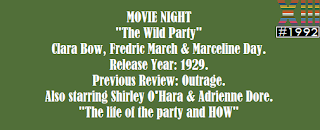Cast:
Delphine Seyrig (Jeanne Dielman), Jan Decorte (Sylvain Dielman), Henri Storck (the first client), Jacques Doniol-Valcroze (the second client), Yves Bical (the third client), and Chantal Akerman (the voice of a neighbor in the hallway) Written and Directed by Chantal Akerman.
Review:
"a love film for my mother. It gives recognition to that kind of woman."
It only makes sense to talk about the bond of a filmmaker with their parent, if you think about it. Born in Brussels, Belgium to Holocaust survivors from Poland, Chantel Akerman was encouraged from a young age by her mother to pursue a career (once describing her childhood as "suffocating") Seeing the film Pierrot Le Fou (as directed by Jean-Luc Godard) as a teenager made her want to become involved in cinema. She attended the film school Institut National Supérieur des Arts du Spectacle et des Techniques de Diffusion before dropping out and later moved to Paris and New York, making short films, which included documentaries such as Hotel Monterey (1973) and Hanging Out Yonkers (1973). In 1974, she directed her first feature with Je, Tu, Il, Elle, which she co-wrote, produced, and starred in (complete with filming a lesbian sex sequence involving herself). Resisting the urge to be labeled as just a feminist filmmaker, Akerman would make a variety of films until her death in 2015 at the age of 65, such as News from Home (1977), Les Rendez-vous d'Anna (1978), and No Home Movie (2015), a film involving conversations with her mother right before her death. Jeanne Dielman, 23 quai du Commerce, 1080 Bruxelles was a co-production between Belgium and France that was filmed on location in Brussels, Belgium in French for five weeks, with the obsessive habits of Akerman's mother being the inspiration for the title character here.
So yes, this is a movie that goes like this: a woman lives in an apartment with her teenage son and does a routine over and over again: brewing coffee, shining shoes, shopping, cooking before eating meals with her kid. Oh, and a session of earning a living by working as a prostitute. If that sounds like something that you would think is 201 minutes long, you would be correct. In a portrait of a woman that is utterly alone and wrapped in a depressive state of self, the movie will only work for those who accept its terms. Look, I get why people like movies that are, well, meant to be the kind of film watched by movie-lovers (I would use the term cinephile, but dear God that just doesn't roll off the tongue), but that does not mean I have to grant it credit for being anything other than "fine". Seyring (a French person born in Lebanon) was actually a well-known figure in France who worked with various directors from Akerman to Francois Truffaut while also serving as a director on three of her own films. This surely must have been one of the toughest challenges, as it is a role that focuses on one paying attention to what she is doing with her movement (and what isn't shown, obviously), even if it is something like peeling potatoes (as for the sex work, well...). As the film goes on and you start to notice the cracks within the banalities, the performance holds the film all the way to its natural conclusion. It is a mundane way to spend time watching long takes in life, which means that a viewer should just go in cold when viewing it and let it dwell in your mind. Boring on purpose or boring on principle, this means that the only appropriate rating to give it is to be as boring as possible in calling it average. A desire for order as you get to hear every little sound and see every little thing may work for you, but I am not in the business of searching for order within the bounds of what the movie is selling me. There are better ways to embrace the chaos of films, where a film that makes you laugh is a film that makes you laugh, and so on. I can respect the craft and then say that the film is best suited for those who have the patience to sit through something I probably won't see again for years, if ever. But don't let that stop you from enjoying something from the world of cinema, because it is a curious and confrontational movie. It challenges your perceptions of what film means to a viewer, and in a subjective world full of tastes in all shapes, enter if you dare.
Overall, I give it 8 out of 10 stars.
Amended: rating to #1993 relegated from 7 to 6 stars due to error.
Congratulations to all who have enjoyed this month of women directors for the third straight March. I enjoyed finding fourteen films to cover from the depths of history that went from the 1910s all the way to 2023 that I hope showed something interesting about history within women actors or directors in cinema and where we still can go. As always, here's to the next month.
#2000 looms in April.



















